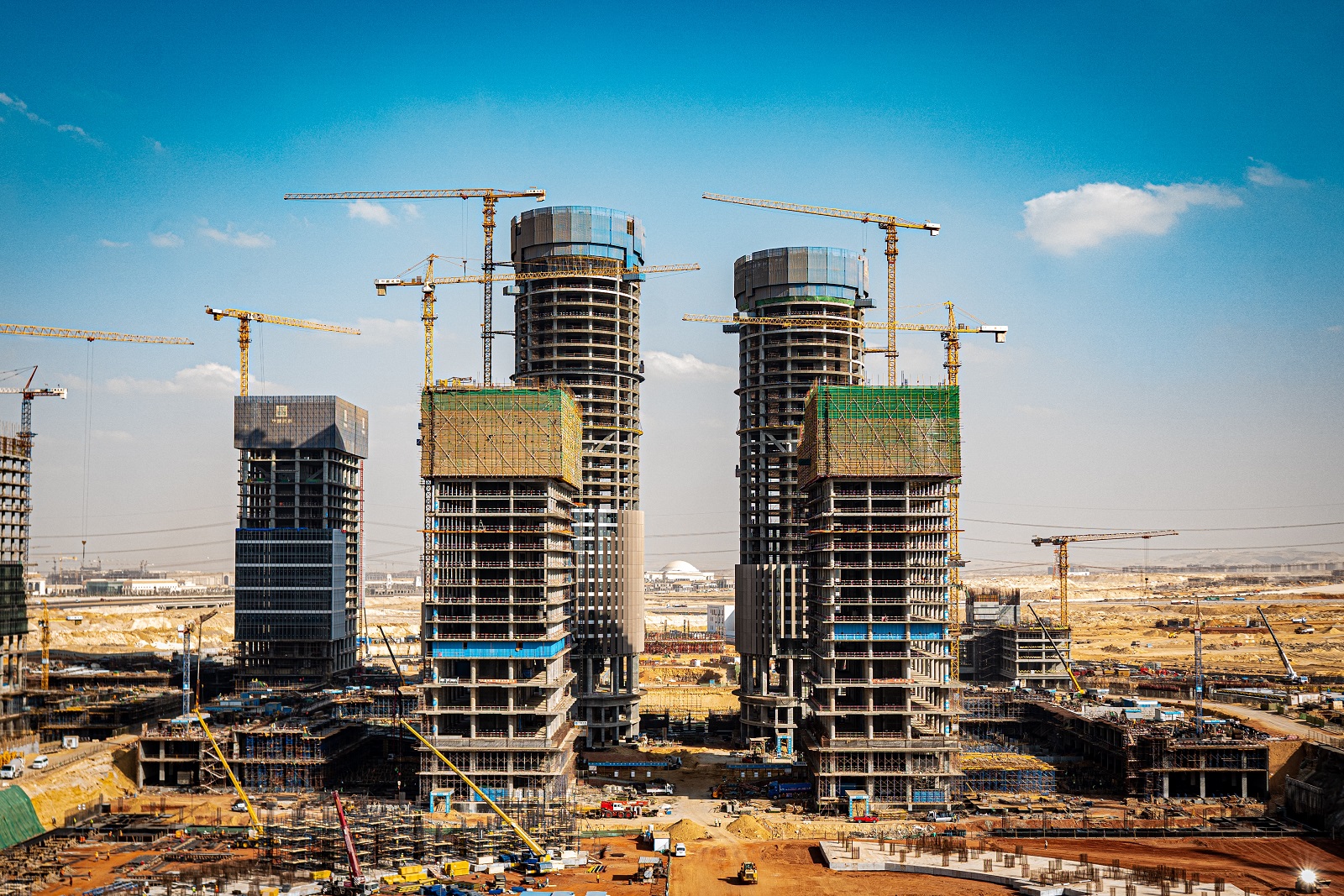Table of Contents
The first thing that comes to mind when most people think of equity is home equity. But there are a lot of different kinds of equity, and you can build equity with any kind of real estate.
One of the keys to building equity though is really understanding what equity is, how it works, and how you can build equity on the properties you own.
So, whether you’re an experienced property owner or really new to owning property and understanding the financial advantages of real estate, you’re in the right place. We’re going to talk about what equity is in real estate, how it works, how it increases or decreases, and strategies you can use to build equity on your properties.
What Is Equity?
On the most basic level, equity is the difference between the market value of your property and how much you still owe on that property.
So, if you have a home, and the market value increases while you own that home, and you make regular payments on your mortgage, reducing the amount you owe, both actions will increase your equity.
Any kind of property you own works this way, not just homes.
Another way of understanding equity is that equity is the amount of the property you own.
Of course, this is just the most basic understanding, there is a lot more that goes into understanding equity and making equity work for you.
How Does Equity Work?
Equity can be used in a lot of different ways depending on your financial situation and needs. For instance, you can pull equity of your properties, increasing the amount of your loan in exchange for a payment for the equity you’ve taken out.
That’s important because it’s one way of making real estate, which isn’t necessarily very liquid, into a liquid asset you can use for other investments or to manage day-to-day expenses, or avoid higher interest debt.
Having a lot of equity is a good thing because it means that you’ve either been responsible about paying off your loans or that the value of your property has increased substantially over time. Either is good news for you and your financial future.
Equity is usually counted property by property, and some properties can be all equity because you own the property outright.

How Can You Increase Equity?
There are a few things you can do that will increase the amount of equity you build over time.
One of them is simply anticipating market changes well. For instance, if you buy in an area where property values are going up faster than average, that’s one way to improve your equity gains.
But, that’s always going to be somewhat speculative, crashes happen, and even the most promising areas see some instability in the average values of properties.
One of the earliest ways you can increase the equity in real estate is by paying a larger down payment. The bigger the down payment you provide the less of the property needs to be financed with a mortgage or other loans or investments.
That means more equity right away, and also means that you’ll probably get better terms on your mortgage, which should mean that you can build equity faster.
But the simplest, and most common way to build equity is just to make payments on the property without changing the terms of your loans or getting new ones.
How Does Equity In Real Estate Build Over Time?
When people talk about equity building over time, they often seem to think that this is just a process that happens, not something that property owners work to create. The truth is that equity is something that needs to be managed, just like any other financial asset.
Yes, just paying off your mortgage will build equity, but what you do with your equity, and how you support building equity also make a big difference.
Making Mortgage Payments
The simplest and most common way to build equity in real estate is to make mortgage payments. If you want to build equity faster, you can make larger payments but be aware that some mortgages charge early repayment fees.
If your mortgage has early repayment fees, it’s important to make sure that the potential benefits from early repayment are greater than the cost of the fees. You need to factor in increased equity, interest you won’t have to pay on the loan, and the reasons you want to pay the loan back early to decide if it’s worth it.
In some cases, you may want to build equity quickly to take out another loan, a home equity loan, also known as a second mortgage. However, when you do take out that loan you lose the equity, and you have to pay off the second loan to start building equity again.
Making Real Estate Improvements
Another way to build equity, though this method is less direct, is to start making improvements to the property.
Almost any improvement can increase the value of a property, but some improvements are more valuable than others.
For instance, when it comes to improving homes to build equity, bathroom and kitchen improvements almost always add the most value for a renovation, though you’re still likely to put in more money than you receive in equity.
Adding a deck or pool can be another good way to build equity in a home, especially a home that didn’t previously have those features.
Other improvements, like a better water heater, new HVAC system, or more insulating windows can improve the equity of just about any property.
You can also get improved equity if you buy land and develop it without going into additional debt. While rare, building a house on land you own without taking out a mortgage would be one way to build a lot of equity, even if you still owe money on the land itself.
The thing about this kind of improvement is that you have to have the money available without taking out a loan to really benefit. And substantial property improvements are almost always expensive, so it’s important to make sure they’re really worth doing.
Most of the time, when people make improvements, they aren’t thinking about equity, they’re thinking about the other benefits. But, if equity from improvements helps further your improvement or investment strategies, this can be a good way to go.

How External Factors Impact Real Estate Equity
There are also a lot of things that are out of your control when it comes to building equity on a property. Homeowners in 2008 learned that lesson the hard way when property values across the country suddenly decreased, even on homes and other properties that had only just been purchased.
The problem wasn’t that the value of the home was different because of damage or some other issue. It was simply that the market was correcting, and that the increased demand for homes brought on by bad lending practices had increased prices to match.
When the loans came do and people couldn’t pay, demand dropped sharply, and values dropped right along with it.
Market crashes are only one of the many external factors that can impact the equity you hold on a property.
Climate change is another factor that more and more investors are considering these days. The value of beachfront property, for instance, is changing as flooding and natural disaster risk increases. For people who already own beachfront property, that can make it difficult to build equity because of the value on some of those properties isn’t increasing the way it used to.
Places that experience more consistent droughts, heat waves, tornadoes, blizzards, and other severe weather effects are also feeling the pinch when it comes to building equity because the demand for homes in those areas is starting to shift. When demand moves away from an area, it gets much harder to build equity there.
Of course, not all external factors are bad.
Say your state pays for a mineral survey in your neighborhood and discovers oil, natural gas, or large deposits of some valuable gem or mineral. That kind of discovery can increase the value of a property immensely, immediately increasing your equity and putting more money in your pocket if you choose to sell.
The construction of new infrastructure or tourist attractions nearby can also increase the value of your property without any real work on your part.
At the same time, the construction of a nearby highway could be a boon to equity, or a curse on your home value depending on how close the highway is and how much it impacts the feel of your neighborhood and the local economy.
The thing about external factors is that you only have so much control over them, and they can be a blessing or a curse depending on how they impact your property values and how much warning you have that local values may be changing.
There are four external factors that you can typically keep an eye on to understand how equity is moving in an area:
- Local demographics
- Interest Rates
- Local economic prosperity
- Governmental action (tax rates, etc)
If you have a good understanding of these things, like knowing that the higher the percentage of college educated people in an area the higher local property values are likely to be, you’ll be better prepared to weather the external factors that are less predictable.
Final Thoughts
Building equity might not be difficult, but it is one of the most important reasons to buy your own properties instead of renting. Building equity is one of the ways to create long-term wealth that can make a difference not simply in your family, but also in your community, and for generations still to come.
If you’re ready to start buying real estate, building equity, and advancing your economic future, contact Teifke real estate. We can help you find the properties you need, will love, and can afford, without all the hassle.
Sources:
- Chazanas, A. (2022, March 2). Council post: The impacts of climate change on the real estate market. Forbes. Retrieved November 17, 2022, from https://www.forbes.com/sites/forbesbusinesscouncil/2022/03/01/the-impacts-of-climate-change-on-the-real-estate-market/#:~:text=Home%20prices%20are%20seeing%20dramatic,attractive%2C%20and%20prices%20are%20dropping.&text=We%20can%20take%20steps%20right,in%20the%20real%20estate%20industry
- Hayes, A. (2022, September 9). Demographics: How to collect, analyze, and use demographic data. Investopedia. Retrieved November 17, 2022, from https://www.investopedia.com/terms/d/demographics.asp
- Nguyen, J. (2022, July 13). 4 key factors that drive the real estate market. Investopedia. Retrieved November 17, 2022, from https://www.investopedia.com/articles/mortages-real-estate/11/factors-affecting-real-estate-market.asp






